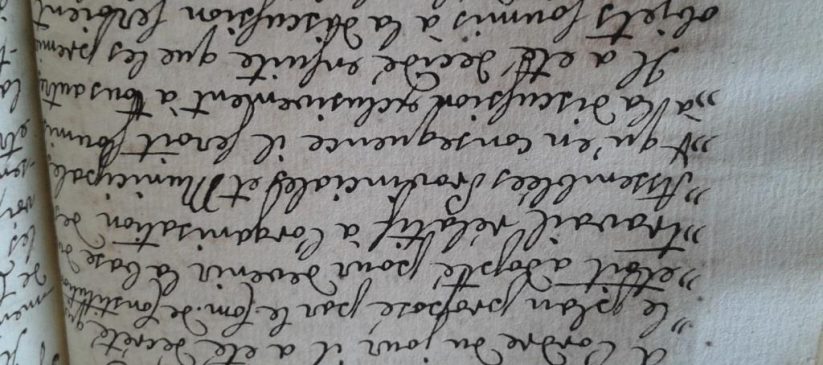Turner Collection

This collection was moved back to Douai Abbey in September 2017. Please contact them for more information: http://www.douaiabbey.org.uk/
In the first of a series highlighting a selection of our collections, here’s a look at our Turner Collection, featuring a bibliophilic monk and revolutionary war.

Consisting of nearly 8000 items in total, the Turner Collection is an invaluable and fascinating source of pamphlets and political tracts directly relating to the French revolution. The 2500 pamphlets in 275 volumes mainly concern the period of 1787-1806 covering the French Revolution and the revolutionary wars. Many of the pamphlets were printed in Paris with the collection also featuring contemporary items printed in other major European printing centres, such as London, on the topic.

The collection is the work of Father John Turner (1765-1844) an English Benedictine monk. In the mid 1780’s Turner was resident at abbeys in Douai (northern France) and Paris. Turner became directly involved in events in revolutionary France, embracing the revolution in 1792 by taking the Oath of Liberty and Equality and joining the National Guard. At that time the monastic way of life was no longer recognised in France. Turner was later imprisoned in Sainte-Pélagie from 1793 to 1794, after the French declaration of war on Britain in early 1793 resulted in the arrest of British citizens in France.

In early 1795 Turner and others of his Benedictine community returned to their monastic life in Paris. It was at this time that Turner began to collect and collate into volumes examples of the vast numbers of revolutionary pamphlets Paris had been flooded with during the revolution. Turner was a bibliophile, he also collected older and rarer books of the ancien régime, in part to replenish the monastic library of his abbey which had been gutted during the revolutionary conflicts.

The pamphlets largely concern contemporary political and ecclesiastical matters, much of the material is of French publication but wider European contexts are also evident. There are for example tracts by Edmund Burke and Thomas Paine, demonstrating the dissemination of revolutionary ideology through the printed medium across Europe and America at this time. Many of the volumes also contain Turner’s handwritten notes and transcriptions.

When the Benedictine community to which Turner had belonged moved to England in 1903 (due to unfavourable anti-clerical legislation in France) they established themselves at Douai Abbey, near Woolhampton. Turner’s collection also came to England and was deposited at the University of Reading by the Abbott and community of Douai in 1966.

As you can see – the collection and the story of its compilation by father Turner certainly packs a punch in terms of historical interest and intrigue! For researchers of the French revolution and the revolutionary printing press the collection is a hugely valuable resource.